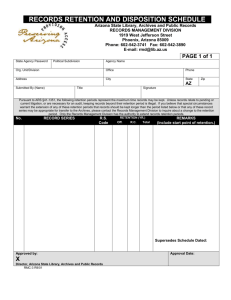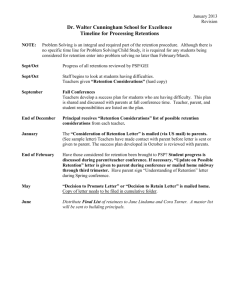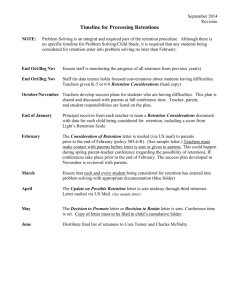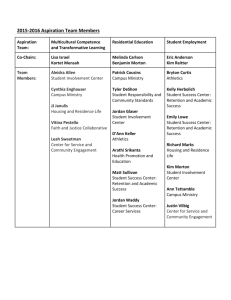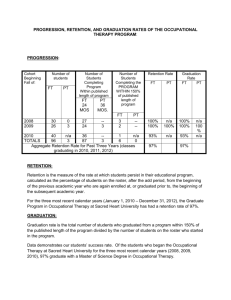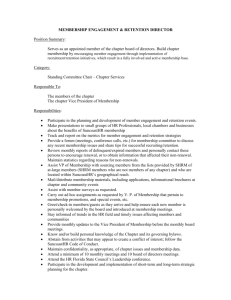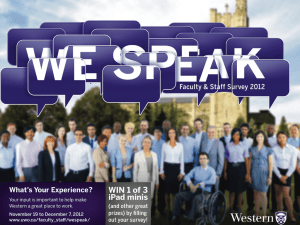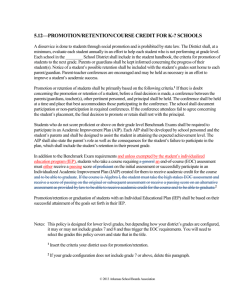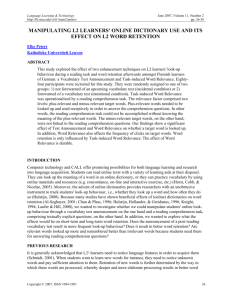Student`s Retention of Teacher`s Instruction in Physical Education
advertisement
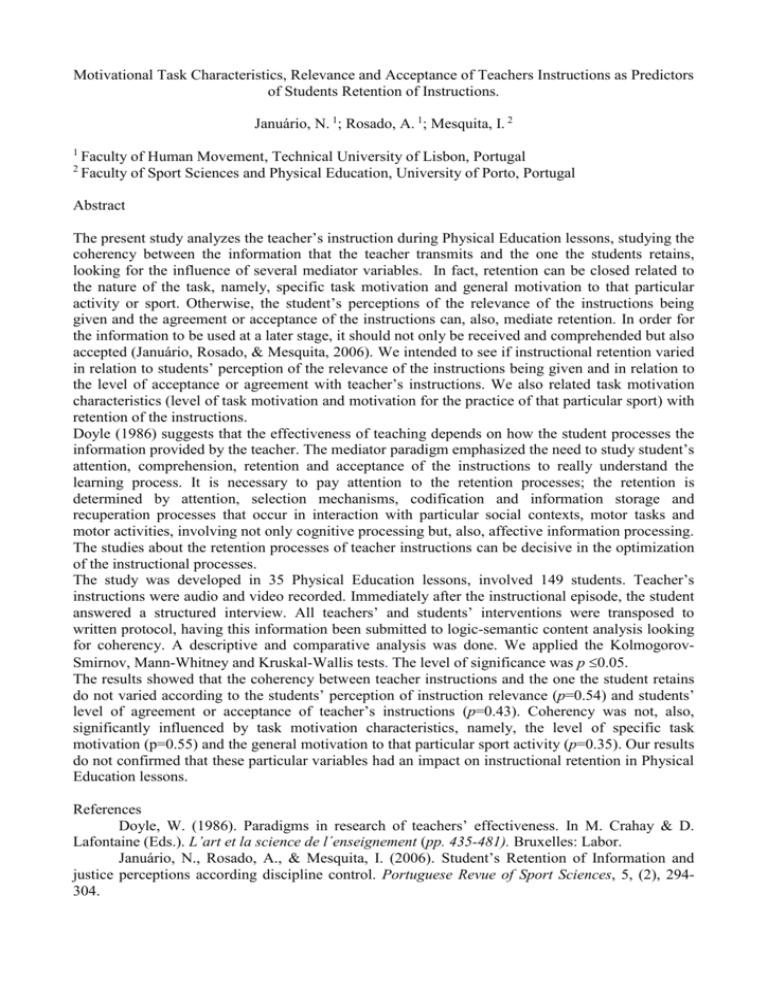
Motivational Task Characteristics, Relevance and Acceptance of Teachers Instructions as Predictors of Students Retention of Instructions. Januário, N. 1; Rosado, A. 1; Mesquita, I. 2 1 2 Faculty of Human Movement, Technical University of Lisbon, Portugal Faculty of Sport Sciences and Physical Education, University of Porto, Portugal Abstract The present study analyzes the teacher’s instruction during Physical Education lessons, studying the coherency between the information that the teacher transmits and the one the students retains, looking for the influence of several mediator variables. In fact, retention can be closed related to the nature of the task, namely, specific task motivation and general motivation to that particular activity or sport. Otherwise, the student’s perceptions of the relevance of the instructions being given and the agreement or acceptance of the instructions can, also, mediate retention. In order for the information to be used at a later stage, it should not only be received and comprehended but also accepted (Januário, Rosado, & Mesquita, 2006). We intended to see if instructional retention varied in relation to students’ perception of the relevance of the instructions being given and in relation to the level of acceptance or agreement with teacher’s instructions. We also related task motivation characteristics (level of task motivation and motivation for the practice of that particular sport) with retention of the instructions. Doyle (1986) suggests that the effectiveness of teaching depends on how the student processes the information provided by the teacher. The mediator paradigm emphasized the need to study student’s attention, comprehension, retention and acceptance of the instructions to really understand the learning process. It is necessary to pay attention to the retention processes; the retention is determined by attention, selection mechanisms, codification and information storage and recuperation processes that occur in interaction with particular social contexts, motor tasks and motor activities, involving not only cognitive processing but, also, affective information processing. The studies about the retention processes of teacher instructions can be decisive in the optimization of the instructional processes. The study was developed in 35 Physical Education lessons, involved 149 students. Teacher’s instructions were audio and video recorded. Immediately after the instructional episode, the student answered a structured interview. All teachers’ and students’ interventions were transposed to written protocol, having this information been submitted to logic-semantic content analysis looking for coherency. A descriptive and comparative analysis was done. We applied the KolmogorovSmirnov, Mann-Whitney and Kruskal-Wallis tests. The level of significance was p 0.05. The results showed that the coherency between teacher instructions and the one the student retains do not varied according to the students’ perception of instruction relevance (p=0.54) and students’ level of agreement or acceptance of teacher’s instructions (p=0.43). Coherency was not, also, significantly influenced by task motivation characteristics, namely, the level of specific task motivation (p=0.55) and the general motivation to that particular sport activity (p=0.35). Our results do not confirmed that these particular variables had an impact on instructional retention in Physical Education lessons. References Doyle, W. (1986). Paradigms in research of teachers’ effectiveness. In M. Crahay & D. Lafontaine (Eds.). L’art et la science de l´enseignement (pp. 435-481). Bruxelles: Labor. Januário, N., Rosado, A., & Mesquita, I. (2006). Student’s Retention of Information and justice perceptions according discipline control. Portuguese Revue of Sport Sciences, 5, (2), 294304.
